Stop Home Scams: Knowing what to look for
COVID-19 has created a housing insecurity crisis. Families across the country are struggling with newfound uncertainty and increasing fragility surrounding their living situations. Unfortunately, scammers use crisis situations like these to prey on people’s fears and insecurities. That’s why it’s so important to pay attention to and learn more about housing scams.
Luckily, our friends at NeighborWorks America are partnering with the Wells Fargo Foundation, National Fair Housing Alliance and National Foundation for Credit Counseling to create a public education initiative aimed at helping consumers take action to protect themselves and their homes from scammers. They have already offered helpful tips to identify and avoid scams:
Do not pay anyone who is not your mortgage lender.
If someone contacts you and asks about home payment, do not pay them. The only entities that should be dealing with your mortgage payments are you, your lender and your certified housing counselor if you’re working with one. Additionally, if anyone gets in contact with you to tell you to stop paying your monthly mortgage payments, do not listen to them. Trying to get someone to halt their payments is a sure sign of a scam.
Do not give any personal or financial information to someone you do not know.
A great general rule is to not give any personal information to anyone who is not a licensed professional or personal friend, especially over the phone. That being said, if someone calls requesting information regarding your personal finances or housing situation, do not answer their questions until you can credibly verify who they are. If you cannot, there is no reason to move forward with any further conversation.
Do not listen to promises.
Someone might try to contact you and tell you that they can fix whatever housing insecurity you might be facing. For example, the person might promise to prevent your home being foreclosed on, or might promise to give you money for your next monthly payment. All payment plans should be arranged directly with your mortgage lender and your housing counselor – and neither will EVER promise you they can stop foreclosure or eviction. They will only provide the best options and counseling with the goal of preventing home loss. Promises of “free” money without certified counseling and expert intervention are a sure sign of a scam, as nobody can guarantee you will not be foreclosed upon or evicted. Also, if someone promises to provide a housing-related service for you, such as lawn care, do NOT pay them before the service has been completed, no matter how sincere their “promise” to get it done is.
Find out what your options are
One of the best ways that you can fight against scams is by becoming informed and arming yourself with knowledge as early in the process as possible. Talk to one of United Housing’s HUD-certified housing counselors, or any one of our team members. We want to help you find housing stability and give you real, practical ways to help you with whatever obstacles you may be facing. Regardless of moratorium deadlines, we can help you get on the path to foreclosure prevention now. The earlier you start the process, the better. Visit https://www.uhinc.org/education/foreclosure-counseling to get started with one of our counselors.
If you are suspicious that someone has tried to scam you or a neighbor, whether they were successful or not, please report the situation to the appropriate authorities such as the Federal Trade Commission (FTC) or the Consumer Financial Protection Bureau. For more resources on stopping scams, visit https://www.stophomescams.org/.
